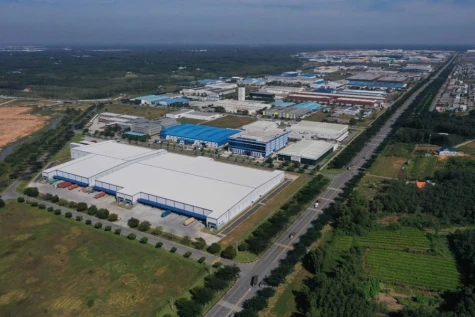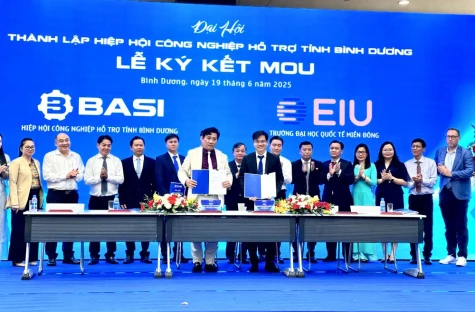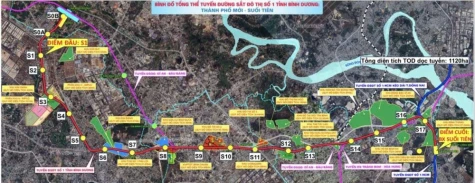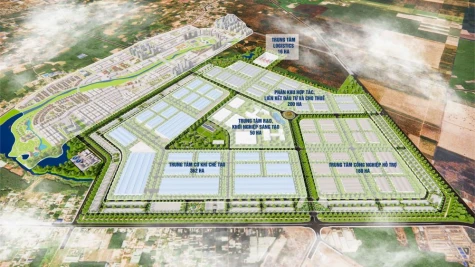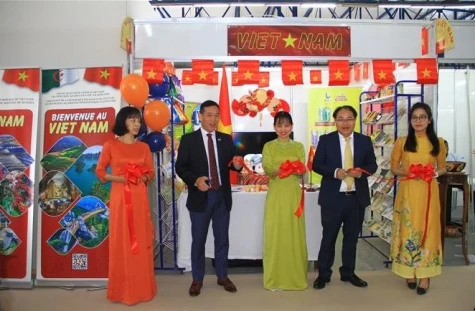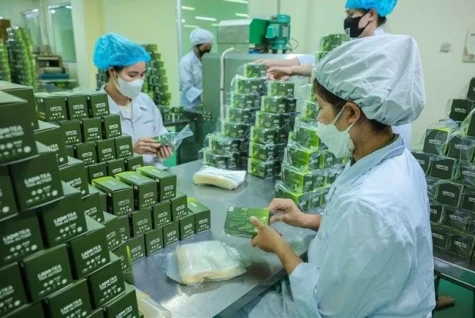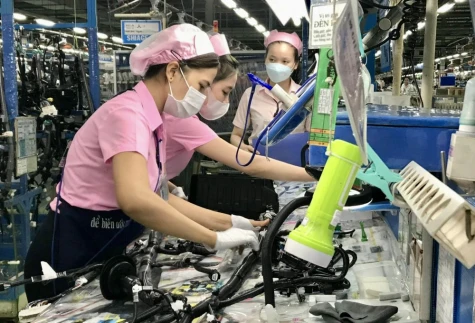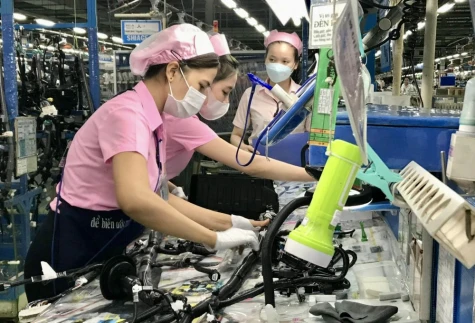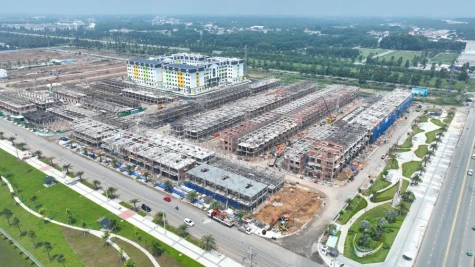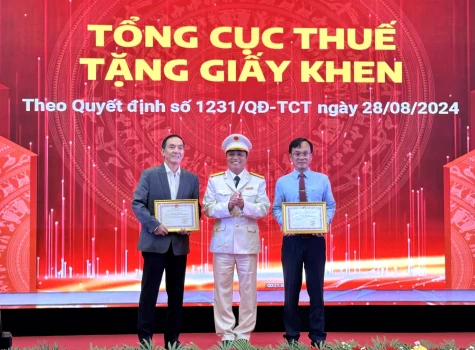As we enter 2025, Binh Duong will continue to maintain and build upon the achievements of the past year. The province is actively implementing its Provincial Planning for the period from 2021 to 2030, with a vision extending to 2050. In the energy sector, Binh Duong is focusing on the development of renewable energy to support the growth of a circular economy.

Soon resolve obstacles
The year 2025 holds significant importance as it marks the end of the five-year socio-economic development plan for 2021-2025 and the preparation for the upcoming 2026-2030 period. Additionally, it will be the year for Party Congresses at all levels for the 2025-2030 term, culminating in the 14th National Congress of the Party. Binh Duong province has also set an ambitious goal of achieving over 10% GRDP growth, with a focus on promoting digital transformation, developing the high-tech industry, enhancing logistics, and building smart cities.
Mr. Nguyen Khanh Toan, Vice President of Binh Duong Renewable Energy Association, said that according to the provisions of Decree No. 135/2024/ND-CP of the Government, rooftop solar power installed in households and offices is considered technological equipment, but there are no clear regulations for systems installed in industrial factories and commercial centers. This leads to businesses having to apply for construction permits, causing difficulties and slowing down the development of rooftop solar power, affecting the goal of reaching 50% of residential and office rooftops with solar power by 2030.
The Government's Decree No. 80/2024/ND-CP requires renewable energy generators to have a minimum capacity of 10MW in order to participate in direct electricity trading. However, many factories in industrial parks find it challenging to install systems with this capacity, which limits their ability to take part in these trading activities.
In response to these challenges, Mr. Ha Van Ut, Director of Provincial Department of Industry and Trade, stated that the department has compiled these issues and sent them to the Ministry of Industry and Trade. Additionally, they have proposed regulations to recognize rooftop solar power systems installed at industrial sites as technological equipment, which would help simplify the installation procedures. Currently, relevant departments, agencies, and sectors are collaborating to enhance information dissemination and provide implementation guidance to ensure consistency in policy enforcement.
According to Mr. Jesper Hassellund Mikelsen, Senior Vice President of Asia Manufacturing at Lego Group (Denmark), General Director of Lego Manufacturing Vietnam Co., Ltd. (Vietnam - Singapore Industrial Park 3), Lego Group is coordinating with Vietnam - Singapore Industrial Park to study energy storage options to serve the factory's production activities. Lego seeks support from all levels and sectors to complete the project promptly and ensure its effective operation.
Facilitate circular economy development
The Provincial People's Committee has issued a document directing the implementation of Decision No. 222/QD-TTg dated January 23, 2025 of the Prime Minister on the National Action Plan to implement the circular economy by 2035. Accordingly, the Provincial People's Committee assigned Department of Planning and Investment to preside over and coordinate with relevant units based on the content of Decision No. 222/QD-TTg to advise the Provincial People's Committee on implementation.
The National Action Plan for the implementation of a circular economy by 2035 clearly states that priority will be given to developing a circular economy to create new growth drivers, enhance resilience and recovery for the economy, create breakthroughs in development, promote growth model innovation; improve quality, efficiency and competitiveness, and create new value-added chains.
Harmonizing the relationship between economy and environment, contributing to the implementation of international commitments on nature conservation, biodiversity, net zero emissions by 2050 and sustainable development. According to experts, supporting the promotion of production, business and consumption activities, including supporting the implementation of ecological design to meet the criteria of a circular economy; supporting the application and development of circular economic models in production and business, promoting innovation; applying digital technology, environmentally friendly technology, and the best available techniques are effective solutions to implement a circular economy.
Mr. Nguyen Van Thien, Chairman of Binh Duong Water and Environment Corporation (Biwase), said that in the coming time, Biwase will continue to have many projects to research and develop solar power to reduce electricity costs, contributing to promoting the trend of using sustainable energy, developing in the right direction of green and sustainability.
According to Binh Duong Provincial Planning for the period 2021-2030, with a vision to 2050, the target of developing grid-connected rooftop solar power is 185MW. For industrial parks, the demand for self-produced and consumed solar power combined with energy storage systems is expected to reach 3,200MW by 2030 and increase to 5,359MW by 2050. In addition to industrial parks, small businesses and households also have the potential to develop solar power, striving to reach a capacity of 3,200MW by 2030. |
Reported by Tieu My, Cam Tu - Translated by Ngoc Huynh








